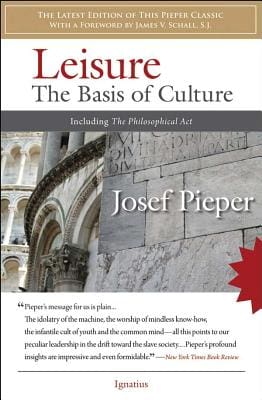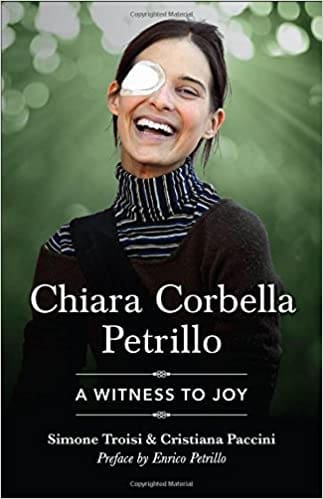It seems almost laughable that a mother of nine children would endeavor to write upon the essential nature of leisure. I can hardly enter a grocery store without individuals sympathetically looking in the direction of my cart, heavily loaded with provisions and children alike, and incredulously shaking their heads. They kindly, and unoriginally, remark: “My, you have your hands full!” And it’s true: a mother’s state is full whether she has one child or fifteen. It is an all-encompassing vocation, in which we are cultivating the hearts, minds, and souls of those entrusted to our care. That weightiness varies through the seasons of maternal life, but the devotion, focus, and intention never fully disappear. Motherhood is not a pastime or transitory career but a state of life.
Such a life is in a seemingly perpetual state of boisterous activity and unpredictability, complete with a cacophony of sounds, myriad of interruptions, and flurry of movements. By modern notions of rest, a fusion between motherhood and genuine leisure not only appears unfeasible but is almost patently absurd. And even when our children have grown, and we no longer contend with unexpected crayon “artwork” upon our walls or lengthy bedtime negotiations with toddlers, how is motherhood any less busy? As we continue to assist our fledgling adult children while they tackle rigorous college schedules, navigate uncharted career paths, discern religious vocations, or nurture Godly romantic relationships, do the demands of a mother lessen? Hardly. But what if the concept of intertwining leisure and motherhood is not so preposterous? What if the real problem subsists in our false understanding of rest?
To our modern sensibilities, leisure is often synonymous with a vacation or a getaway. We think of these as moments where we can escape the constraints or struggles of “ordinary” existence and pursue our interests, divested of responsibilities. While holidays and breaks from daily stressors are, in fact, a means of fostering leisure, they are not, in fact, leisure itself. In his classic work Leisure, the Basis of Culture, German philosopher Josef Pieper presents a rather foreign concept to the modern mind, namely that leisure is,
“a mental and spiritual attitude – it is not simply the result of external factors, it is not the inevitable result of spare time, a holiday, a weekend or a vacation. It is, in the first place, an attitude of mind, a condition of the soul, and as such utterly contrary to the ideal of “worker” in each and every one of the three aspects under which it was analysed: work as an activity, as toil, as a social function.”
Josef Pieper – Leisure, the Basis of Culture
In our contemporary view of work, it is pursued chiefly as a source of either personal fulfillment or satisfaction, or, conversely, as a disdained, however necessary, component of human existence (somebody has to take the trash out, after all). And how often do we fall into the trap of viewing our own lives in this light? How often do we fail to cement, in our minds and attitudes, the significance of all our maternal duties, however menial, because our responsibilities lack the glamour, excitement, and prestige the world argues as indispensable to human happiness?
While none of us are entirely insulated from this hazardous modern mentality, the blessing of our Faith, centered on nurturing a genuine relationship with Christ, is that, through His intimate involvement in our individual lives, even the most humdrum aspects of human existence are bathed in a supernatural brilliance. This illuminates our work with significance that both reaches into the treasure trove of humanity’s spiritual heritage and extends into the unimagined stretches of the future, into eternity itself. So, while changing a diaper might not seem particularly noteworthy, when we look beneath its veneer and recognize virtues such as humility and charity that might accompany such an act, it demonstrates a whole new worth. Suddenly, seemingly ordinary activities are transformed through our submission to His grace. Even serving a meal enables us to better align our souls, as well as our thoughts, words, and deeds, to Christ’s ultimate end: everlasting salvation
And this brings us to our chief consideration on leisure, the orientation of ourselves to the Divine. Pieper, like Plato millennia before him, recognized that,
“The soul of leisure lies in celebration. Celebration is the point at which the three elements of leisure come into focus: relaxation, effortlessness, and the superiority of ‘active leisure’ to all functions. But if celebration is at the core of leisure, then leisure can only be made possible and justifiable on the same basis as the celebration of festival. That basis is divine worship.”
Josef Pieper – Leisure, the Basis of Culture
It is impossible to aspire to true leisure, true peace and contemplation, without a penetrating understanding of our relationship with the Almighty and how that relationship should permeate our entire earthly existence. When our relationship with God is where it is ultimately called to be, we live for truth beyond ourselves and our fleeting interests, and we live our vocation in light of the eternal. Then it matters not if we are serenely contemplating the ocean’s magnificence from sandy shores, or patiently standing in line in a bustling grocery store – our minds are at rest in Him.
A dear friend of mine, and fellow Well-Read Mom, made the following observation at last year’s kick-off meeting, when we were discussing the biblical figures of Mary and Martha. When our group contemplated the seeming disparity between motherhood’s hustling commotion, so like Martha, and the serenity of Mary’s contemplation, our friend poignantly noted that, while we might not physically be able to always rest in contemplation, our connection to God should be “woven through the fabric of our lives.” That insight has resonated with me ever since. However imperfectly I might practice it, however distracted and flustered I frequently become, her words are a beautiful reminder to continually redirect myself to finding God in every moment He affords me in this world. Such moments include winding through sun-speckled paths on a tandem bicycle, enjoying a rare moment of blissful quiet with my husband; delighting in the antics and caresses of my children; turning off the radio during one of my daily (and seemingly countless) chauffeuring trips to bask in a brief moment of prayer; or even while washing a sink full of dishes after an exhausting day. All these moments, even the less obvious, invite the promise of leisure, if only we accept the invitation.
During the final months of her earthly life, as eternity loomed near, Chiara Corbella Petrillo was able to separate herself from the distractions of this world and repose in the tranquility of Christ. (Her biography, Chiara Corbella Petrillo: A Witness to Joy, was on the Well-Read Mom summer reading list of 2020.) In the height of her physical anguish, she was able to relish the splendor of the simple beauties surrounding her, because she saw their connection to Her beloved God, her neighbors, and her eternal life. She reflected that we are “made for eternity” and all that we do, “the little things, daily routines: an encounter, a word, a night spent serenely, the nearness of friends,” should be spent in humble gratitude, awe, and obedience to the One who gifted us this life out of His limitless love.
With these words as inspiration, may we, as women and mothers, view our vocations as a catalyst, not an impediment, for true leisure, placing ourselves with serene confidence in His care and constantly reflecting on His wondrous ways.
In Well-Read Mom, women read more and read well. Our hope is to deepen the awareness of meaning hidden in each woman’s daily life, elevate the cultural conversation, and revitalize reading literature from books. If you would like to have us help you select worthy reading material, we invite you to join and read along with us. We are better together! For information on how to start or join a Well-Read Mom group visit our website wellreadmom.com




